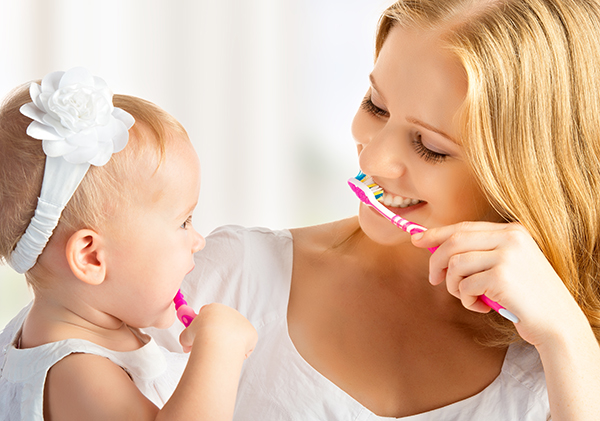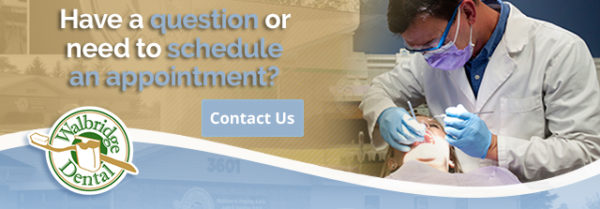
Teething is a different experience for every child. Some experience it later than others, and some find it unbearable while others may adjust with little discomfort. But the most important thing is that you know how to take care of their teeth when they start to show. Caring for baby teeth is similar, but not identical to caring for permanent teeth.
Read on to learn more about baby teeth care and how to help your son or daughter grow up with a flawless smile.
Is It Necessary to Care for Baby Teeth?
It’s true that your baby’s teeth are temporary. But it’s a common misconception that this means you don’t need to care for them like their permanent teeth. Poor dental care affects more than just teeth!
Your baby’s teeth hold the place for their permanent teeth to grow in. Typically, these teeth are only lost when the permanent teeth are ready to replace them. When they’re lost early, the unerupted permanent teeth may begin to shift beneath the gums and disrupt the healthy development of their bite.
Secondly, poor oral hygiene leads to gum disease. While your baby’s teeth may be replaced, their gums are there forever. If you don’t take care to clean their teeth of sugary drinks or other potential causes of gum disease, they’ll begin to develop bacterial growth that can turn into plaque. Advanced gum disease takes time to develop, but your infant is just as susceptible to it as you are!
Lastly, developing good habits starts early. When your child is in their early years, it’s easier to teach them that brushing is a necessary part of the morning and bedtime routine. These habits can then help them live a healthier life for decades to come!
When to Start Planning for Baby Teeth Care
Your baby’s first teeth are most likely to start erupting when they’re around five months old. However, don’t panic if they take a little longer! Sometimes it takes up to around 12 months before the first tooth shows.
When that first tooth comes in, you should start planning your child’s first dental visit. It may seem unnecessary, but it’s important! Your child’s dentist will help identify early risk factors of cavities or development problems. More importantly, they can help answer your questions about caring for baby teeth.
At around one year, if your child hasn’t developed their first tooth, it’s recommended to schedule a dental appointment for them anyway.
How to Safely Care for Baby Teeth
Your cleaning routine for your baby’s mouth can start prior to the erupting of their first teeth. Using a soft cloth damp with warm water, gently wipe across their gums. This will help clear away remnants of formula or bacteria.
After their first tooth erupts, you can purchase a specialized baby toothbrush. These brushes use a very soft bristle and will be safer for their mouths than an adult toothbrush. You can start with just water, but it’s also safe to a small amount of fluoride toothpaste as well.
If you use toothpaste, make sure it’s a very tiny amount, similar to a grain of rice. This will help them avoid swallowing the toothpaste, which could upset their digestive system.
You don’t need to incorporate flossing until enough of their teeth begin touching. However, it’s a good idea to start flossing as early as necessary to help make it part of their routine too.
As your child ages, you can start to add a little more toothpaste to their brush. Teach them how to spit out excess toothpaste and saliva instead of swallowing. If your child frequently swallows toothpaste, try cutting back on the amount you use. It doesn’t take much toothpaste to get the benefits of fluoride!
Dealing with Teething Troubles
Parents know that teething can be a stressful time for everyone. Your child will suffer chronic discomfort throughout the teething process, and often expresses it through fits and crying. When they start to show signs their teething pain is reaching its peak, there are some steps you can take to help reduce it:
Use Pressure – Gentle pressure from your finger or a very soft cloth can help reduce discomfort from teething.
Chewing – Foods that require some difficulty to chew can often take the role of applying pressure and give your child something to distract themselves at the same time, such as sliced carrots. Of course, only try these foods with infants that are already eating solids and keep an eye on them to avoid choking!
Cooldown – Cold or cool objects can help reduce the discomfort as well. Cold water over a cloth gently placed against their gums can ease their pain.
Avoiding Cavities with Your Child’s New Teeth
Caring for baby teeth is like caring for adult teeth. That’s why it’s important to start your child off with great habits before their permanent teeth come in! Here are some tips to help your child avoid cavities:
Don’t Put Your Child to Bed with a Bottle
It may sound convenient to put your child to bed with a bottle, but all it does is increase the chances that they will continually expose their teeth to sugars. While drinking from a bottle is fine, the problem comes from constantly sipping from it over a long period of time.
Make Brushing a Requirement
Children commonly see brushing as a chore. While it may seem difficult to get your child to brush regularly, it’s crucial to their health. More importantly, if they develop gum disease, they’ll be less inclined to brush in the future, as their gums will be more sensitive to the bristles of their brush.
Incorporate brushing into their routine in a way that it can’t be skipped or forgotten!
Avoid Sugary Drinks and Foods
Parents can feel blindsided when their dentist points out how many of their children’s favorite foods or drinks are full of sugar. The most problematic of them all is fruit juice. Children can be picky eaters, and tend to favor juices over water, the healthiest option.
You don’t have to forego juice and sugar completely. Limit them by offering as special treats and try to incorporate these foods or drinks into lunch or dinner. This prevents snack time from introducing more sugars to their teeth and increasing their chance to develop cavities.
Do You Have Dental Health Questions? Schedule an Appointment!
We can help make sure you and your family are brushing correctly. If you’re concerned or just looking for information, the professionals at Walbridge Dental provide complete family dental care to families in the Millbury community. Contact us online to set up an appointment now or call us at 419-836-1033.
Connect on Social Media!

